Romie is a very thrifty person. Generally, I am not, though I have been known to pinch a penny, given the right motivation. So maybe it was the unlikeliness of me trying to convince him of the value of composting that made him suspicious and hesitant. Whatever it was, he's now seen the advantage of having our own compost bin. I don't think I've completely won him over, but he'll see soon enough that I was right.
I wasn't all that crazy about composting before this summer either. I didn't think we had enough waste to warrant going to the effort. But when I began to see how much I was throwing in the field or piling on the firepit, I knew we were throwing away potential 'black gold.' 
Garbage in, organic fertilizer out. Sounds simple, doesn't it? Well, it is. Sort of. There are a few things to keep in mind:
- You need a balance of carbon (paper, sawdust, wood chips, straw, leaves) and nitrogen (food, grass clippings, manures).
- A compost pile needs air. Turn the compost with a pitchfork at least every other week.
- Compost needs to stay moist. If you don't get regular rainfall, water it.
- Keep your compost pile warm. It likes to be 90°-140° F, and the best way to achieve this is to not let the pile get too small. Ideal size is at least 3' x 3' x 3'.
- Big chunks of stuff takes longer to compost, so if you need to chop it a bit before adding it, this will only help your compost to be ready to use sooner.
There are things you shouldn't add to a compost pile:
- Meat, bones, fish, grease, and oil. These things attract rodents.
- Pet waste, which can contain disease.
- Weeds with seeds and runners. Other weeds are fine to add.
- Plants with diseases and insects.
- Treated wood or anything with chemicals or strong preservatives.
- Ashes. They slow down the process of turning your waste into compost.
So that's the short of it. We'll see how this works out.
*Composting information from Texas A&M University website.







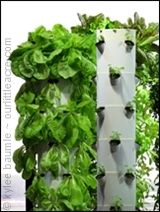
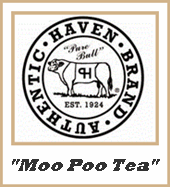

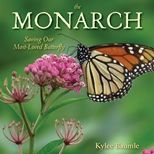





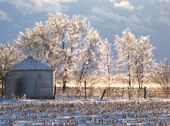 "Bejeweled"
"Bejeweled"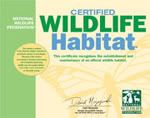
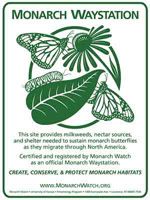


3 comments:
Yes! I heard the wistful note in your voice when I showed you the compost bins at the site, so I'm not too surprised about this development.
It's exciting when your compost is ready for use. It takes time to get the balances right. I also am sort of lazy about it and forget to turn it. Suddenly I remember ... or, at least the smell tells me so.
Your comment in my latest blog was really appreciated. I so like coming here to see what is happening in a similar environment, even though it is warmer there. I'll always remember one of your first comments pointing out that the giant wheat fields here looked just like they there!
Happy gardening week to you ...
Good luck with the composting Kylee. I started last year and am hooked. It is great when your first compost is ready for *harvest*. It is such a wonderful thing to spread all that goodness around in the garden! Your garden will be very gratefull !
Post a Comment